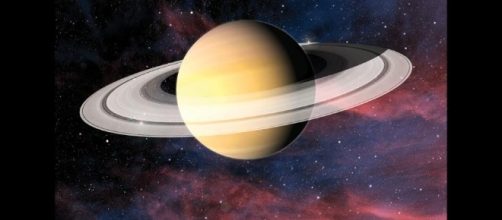For many decades, scientists always dismissed the possibility that alien life may exist on Saturn or its moons as they believed that the conditions there are very hostile and because it does not have the necessary “building blocks” that would facilitate the Evolution Of Life. However, the spacecraft Cassimi has recently sent amazing images and other data that suggest otherwise. NASA’s scientists believe that this evidence of alien life is the strongest ever received.
The evidence
Recent images and data which were collected by the Cassimi spacecraft during its last tour of the sixth planet have revealed that the necessary “building blocks” are there.
Cassimi has discovered that hydrogen exists on two of Saturn’s moons, Rhea and Titan. According to NASA’s scientists, hydrogen has the potential to act as a chemical source of energy that could support microbial life.
Life on other planets in our solar system
At this point, no one expects to find advanced or intelligent Alien Life forms under such harsh conditions that exist on other planets of our solar system. However, there is strong evidence that primitive, microbial, extremophile organisms that thrive under very harsh environments may exist on Saturn’s moons, Rhea and Titan as well as the planet Mars. In fact, NASA has announced a manned mission that will put humans on the Red Planet by 2033.
Such extremophile organisms exist on Earth and can really flourish under very harsh environments where oxygen or light do not exist. This makes scientists very hopeful that soon we will discover such life forms on planets within our solar system.
At this moment, humanity does not possess the technology to explore planets beyond our solar system for more complex life forms, but still, a discovery of primitive life forms living under harsh conditions on planets within our solar system would be extremely significant.
The great significance
The great significance of finding proof that life exists on the other planets within our solar system is that we would understand that our Universe is a “fertile” place where the evolution of life is not a unique event that took place just one time on a small blue planet called Earth. Such a discovery would give well-based hopes to humanity that soon we will advance our technology in order to be able to explore beyond our solar system to find an Earth-like planet that will be suitable for us to colonize.
In fact, a few days ago, the well-known physicist Stephen Hawking issued a clear warning that humanity must find a new planet in the next 100 years or face extinction because he believes that there are so many threats to humanity if we only live on one planet. One of these threats may possibly destroy us in the next 100 years. Hawking believes that it is possible to achieve this before the catastrophe occurs.


